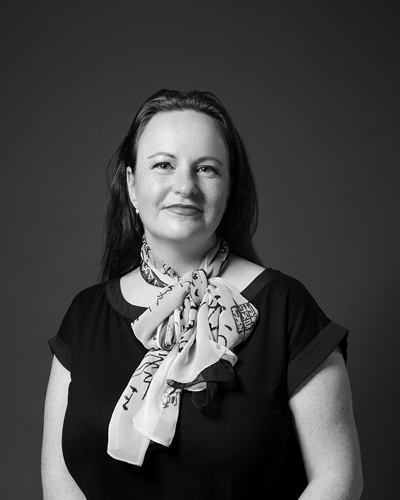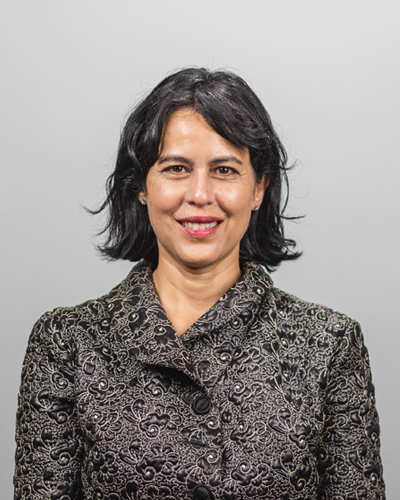
About
Media and Technology Studies Education (MTSE) offers an expansive, interdisciplinary exploration, seamlessly integrating digital media studies with technology education. This field provides a comprehensive understanding of the profound ways in which digital platforms and technological innovations influence and reflect cultural norms, political discussions, and individual identities. By weaving together design thinking principles and the analytical insights of digital media, MTSE presents a unified domain that skillfully combines technology’s practical applications with the vibrant landscape of digital media. This program delves deep into the analytical skills necessary for technological innovation, while critically examining digital platforms’ impact—from social networks to streaming platforms—on society’s fabric. Emphasizing both the functional and ethical dimensions of technology, as well as the creative and strategic engagement with digital media, MTSE equips students with a nuanced grasp of the complexities of the postdigital era.
Programs
The Department of Curriculum and Pedagogy offers a PhD specialization in Curriculum Studies with a concentration in Media and Technology Studies Education, and MA and MEd specializations in Media and Technology Studies Education, along with a secondary Teacher Education (BEd) major.
Admissions
All graduate program applicants in the Department of Curriculum and Pedagogy (EDCP) must meet the minimum entry requirements established by the Faculty of Graduate and Postdoctoral Studies, which oversees graduate work at UBC. Applicants who do not meet the minimum requirements will be considered for admission only in exceptional circumstances.
Doctor of Philosophy
In addition to the Faculty of Graduate and Postdoctoral Studies requirements, the Curriculum Studies graduate program requires a master’s degree with high standing in a relevant educational discipline and evidence of potential to carry out research.
- a Master’s degree with high standing in a relevant educational discipline,
- a sample of work demonstrating scholarly writing,
- a letter of intent describing the focus of the proposed research,
- The support of three referees, one of which must be from a member of your thesis supervisory committee.
- For students possessing a thesis-based Master’s degree from other than a relevant educational discipline, it may be possible to proceed into the Ph.D. after taking the core course requirements of an appropriate Master’s degree in education at UBC.
Applicants to the doctoral program are encouraged to connect with and consult an MAED faculty member before an application is submitted.
Master of Arts (Specialization in MTSE)
Designed for those with interest and potential in doing academic research.
In addition to the Faculty of Graduate and Postdoctoral Studies requirements, the program normally requires:
- One-two year/s of teacher experience in an educational context; or a four-year Bachelor’s degree in Education. In special circumstances teacher education may be waived for those applicants who have a university degree with sufficient standing and experience related to their proposed field of study.
- Normally 18 credits of senior course work or a professional concentration in the area of interest.
- Normally two years’ teaching experience or other relevant professional experience.
Master of Education (Specialization in MTSE)
Designed for the professional interested in connecting theory and practice.
Same as for the MA. However, applicants for MEd must be inclined to focusing their studies on application of educational theory in their professional practice.
Bachelor of Education (BEd)
Please see link for information.
Requirements
Doctor of Philosophy
The PhD in Curriculum Studies is a flexible, research-oriented doctoral program designed for students interested in the organization of learning within educational settings. If you are admitted, you will take your first doctoral seminar in the first term and second doctoral seminar in the second term of the first year. In addition to these six credits, you will need two research methodology and two specialization courses (18 credits total). You will select your courses in consultation with your supervisor(s) or program coordinator, based on your prior academic work and research interests. Students in the PhD program typically reach candidacy by the end of the second year of their studies. In exceptional circumstances, students are allowed to take additional year to reach candidacy. Normally, students devote two to three years of developing, carrying out research, and writing dissertation to make an original contribution to knowledge in the area of specialization.
The university allows doctoral students up to six years to complete program requirements.
Please browse our admissions page for more information and applications to the Department.
Master of Arts (Specialization in MTSE)
The program consists of a minimum of 30 credits: 21 credits of coursework plus 9 credits of thesis. A maximum of 6 credits may be taken at the 300-400 level.
REQUIRED COURSES
- EDCP 562 (3) Introduction to Curriculum Issues and Theories
- EDUC 500 (3) Research Methodologies in Education
- EDCP 5XX– 3 to 6 credits of Media & Technology Studies content at 500 level (1 to 2 courses).
- 3 credits at 500 level of research methodology
- EDCP 599e (9) Thesis
For more information on requirements, see the master’s program guides: Master’s Program Guidelines
Master of Education (Specialization in MTSE)
The program consists of a minimum of 30 credits. Students select either a program consisting entirely of courses (30 credits) or 27 credits of coursework plus a graduating project (3 credits). A maximum of 6 credits may be taken at the 300-400 level.
REQUIRED COURSES
- EDCP 562 (3) Introduction to Curriculum Issues and Theories
- EDUC 500 (3) Research Methodologies in Education
- EDCP 5XX – 6 credits of Media & Technology Studies content at 500 level (2 courses).
For more information on requirements, see the master’s program guides:
For more information on requirements, see the master’s program guides: Master’s Program Guidelines
Apply Online
Find and Approach a Potential Supervisor
The most important first step in applying for admission to our graduate program is finding and approaching a potential supervisor in the department. This gives you an opportunity to discuss the research you are interested in completing as a graduate student. We make every effort to match an applicant with a supervisor. However, if there are no supervisors available, we will not be able to offer an admission to an applicant. Anyone interested in applying for admission to graduate program in our department is advised to visit the Curriculum and Pedagogy website via the Faculty page to find faculty whose research aligns with their interests. There is a space in the application form for you to list your preferred supervisors.
Apply online
Submit your application online
Complete the online application. To be considered for admission, submit your completed application including all supporting documents, by the deadlines noted below. Note: the online application will be open October 1.
For detailed application process and requirements, click here.
Please follow the instructions on the online application portal.
Early submissions are encouraged.
* The department deadline for receipt of completed, master program applications is December 1.
* References are due December 12.
* The department deadline for receipt of completed, doctoral program applications is December 1.
* References are due December 7.
Supporting Documents Checklist
Document type
- Scanned copies of all official transcripts and degree certificates (if any). Submit | Online.
- Three letters of recommendation (one of which for doctoral applicant must be from a member of the thesis supervisory committee). Submit | Online.
- CV/resume. Submit | Online.
- Evidence of English language proficiency. Submit | Online.
- Sample of Writing for doctoral applicants (no more than ten pages). Submit | Online.
- Any additional information. Submit | by email attachment to edcp.grad@ubc.ca.
Upload supporting documents online
Transcripts & Degree Certificates
Applicants will be asked to upload transcripts with their grade key (usually located on the back of the transcript). Even if the applicant does not yet have final marks on the transcript, we still require a copy as evidence of registration and academic progress (we do not accept printed student’s records).
Upload scanned transcripts and degree certificates (if any) online. Please be advised that if you are admitted you will be required to submit original transcripts and degree certificates (if any) in the SEALED and ENDORSED envelopes as soon as possible after admission is offered. Students are not allowed to register in courses until this requirement is met.
Statement of Intent for MA and PhD Applicants
In the application portal, you will be given the opportunity to add a Statement of Intent (maximum 2 pages) describing why you choose to pursue graduate studies at UBC and in which area of research you want to concentrate your work. For more information, click here.
Statement of Intent for MEd Applicants
Please write a summary of your reasons for wishing to enroll in the program of your choice, and what it is that you hope to achieve in completing this program.
Letters of Recommendation
We require three letters of recommendation (one of which for doctoral applicant must be from a member of the thesis supervisory committee). See detailed requirements.
Referees will be able to upload their letters once you have submitted your application, so please ensure that they are able to submit by the deadlines noted above and that you provide them with appropriate timelines.
Submit other supporting documents
Evidence of English Language Proficiency
Applicants from a university outside Canada in which English is not the primary language of instruction must present evidence of competency to pursue studies in the English language prior to the application deadline in December.
Test scores must have been taken within the last 24 months at the time of submission of your application, and official test scores ordered from the testing agency is required.
TOEFL minimum scores
Test Format | Minimum Score
Internet-based | 92 (minimum 22 on each component)
Computer-based | 237
Paper | 580
TOEFL Institution Code: 0965
TOEFL Department Code: 85
Detailed language requirements and other acceptable English proficiency tests
Permanent Residents
Permanent Residents are required to provide proof of immigration status and date of landing by submitting a copy of the Record of Landing Form or a copy of both the front and back of their Permanent Resident card.
Additional Information
You are welcome to submit additional information, regarding professional employment experience, publications, or awards, which you feel should be taken into account in considering your application. These can be sent by email attachment to edcp.grad@ubc.ca.
Contact Us
Mailing Address
Department of Curriculum & Pedagogy
Faculty of Education
University of British Columbia
Scarfe Building 2125 Main Mall
Vancouver BC V6T 1Z4 Canada
Important Numbers
Apply for graduate programs:
Gina Hiu Lam Wong
604.822.5367
Email: edcp.grad@ubc.ca
Apply for undergraduate programs:
Contact the Teacher Education Office

